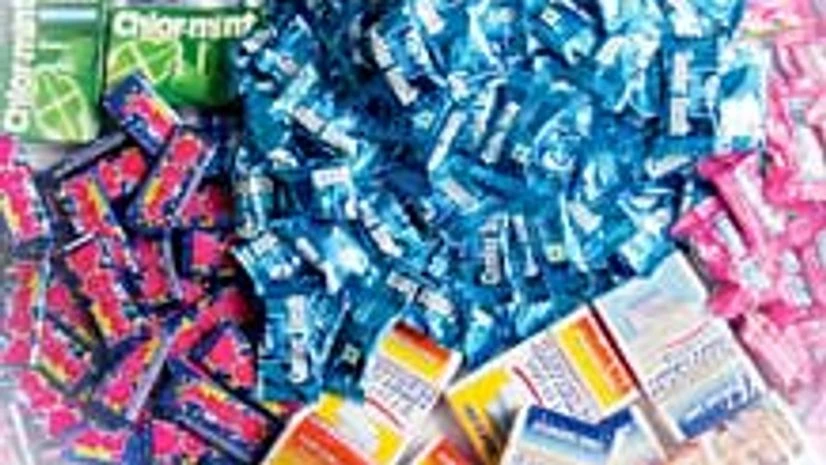The beginning of the new century was to further enhance the growth of Perfetti India, not only organically but also through the absorption of another entity. The Perfetti Group had for a long time shares in the Van Melle Group, a Dutch conglomerate listed on the Dutch stock market and owner of internationally reputed brands such as Mentos and Fruittella.
Towards the final part of the 1990s, this Group was considering its possible next steps to grow internationally in a more competitive market environment. After surveying possible alliances they eventually accepted the offer from one of their shareholders and longtime business partner, Perfetti, to take over the company and merge it into one larger conglomerate.
This happened early in the year 2001 and, a few months later, once at central level all financial transactions had been settled, the two companies started merging their local operations all over the world. Van Melle had recently opened a local subsidiary in India. They had built and just inaugurated it at the time of the take-over a manufacturing unit in the south of India, close to Chennai. The company had started distributing their brands regionally in the south and the west of India, initially with imported products, later on with those produced in the newly opened plant.
Even in their case, as it had happened in 1994 for Perfetti, they had had problems of product stability due to the climatic conditions and had been forced to withdraw some of the products initially launched to substitute them with newly formulated ones that would not melt during the hot season. Both for the product portfolios and for the location of the respective factories, the take-over of the local Van Melle subsidiary from Perfetti India was a win-win situation.
For the young Van Melle subsidiary, which was struggling to achieve a national distribution with a limited product portfolio, it would have meant a sudden major leap in the presence of their products throughout the country. They would have also benefited from the consolidated experience in the country of Perfetti, both in operations and in R&D.
For Perfetti, which historically had a very strong presence in the northern and eastern region, the acquisition of new distributors in the southern and western regions would have integrated the existing network. Furthermore the new brands, chewy candies with international awareness and status, were complementary to those already existing in the Perfetti portfolio, consisting of gums and hard boiled candies perceived as local rather than as international brands.
The location of the newly acquired plant in the south would add a second manufacturing pole located at the opposite side of the country vs. the Perfetti plant in the north, with obvious logistic advantages. The whole process of merging the two entities was an enriching experience for me and for my team and helped me get to know much better the southern culture, very different from the one I had been exposed to while living in Delhi.
India has multiple cultures in every region, possibly every state. In the north, Punjabis are very different from Kashmiris or other north-eastern people such as the Nagas or Manipuris. In the south, Keralites would feel offended if assimilated into one with Tamilians (and possibly vice-versa).
While dealing with teams mainly from a northern and a southern state I could find major differences among the regional cultures. Starting from the workers in the factories, one would have immediately noticed the different attitudes in the Manesar (north) plant against the Chennai (south) one.
This was also due to the fact that the average education level of the shop floor members in Chennai was higher than that in Manesar, reflecting also the major difference in literacy between the south and the north. While the jugaad fixing was very common in the north, the Chennai factory would have a much better maintenance of the machines. The semifinished product would be kept in different trays scattered around the production hall in the north; it would be instead temporarily stored in the demarcated area with the trays' colors varying according to the product type in the south.
The meals break would see a flow of workers moving as kettle towards the canteen in Manesar while an ordered queue lined up at the food counter in Chennai. Changing rooms in the southern factory would be distinctively cleaner and better maintained than those in the northern one, though upkeep was also a function of the different age of the two plants.
Also in terms of white collars and managers, the southern ones would be of lesser words and low profile, whereas the northern ones would be more vocal and ready to show off their latest car or gadget.
WHEN NOT IN ROME, DON'T DO AS THE ROMANS DO: A CANDYD ITALIAN IN EMERGING MARKETS
AUTHOR: Stefano Pelle
PUBLISHER: SAGE Response
PRICE: Rs 450
ISBN: 9788132110873
PRICE: Rs 450
ISBN: 9788132110873
Reprinted by permission of publisher. Excerpted from Stefano Pelle: When Not in Rome, Don't Do as the Romans Do: A CandyD Italian in Emerging Markets . Copyright 2013 Sage Response.
All rights reserved.
All rights reserved.

)
